Affidavit of Support Samples
-
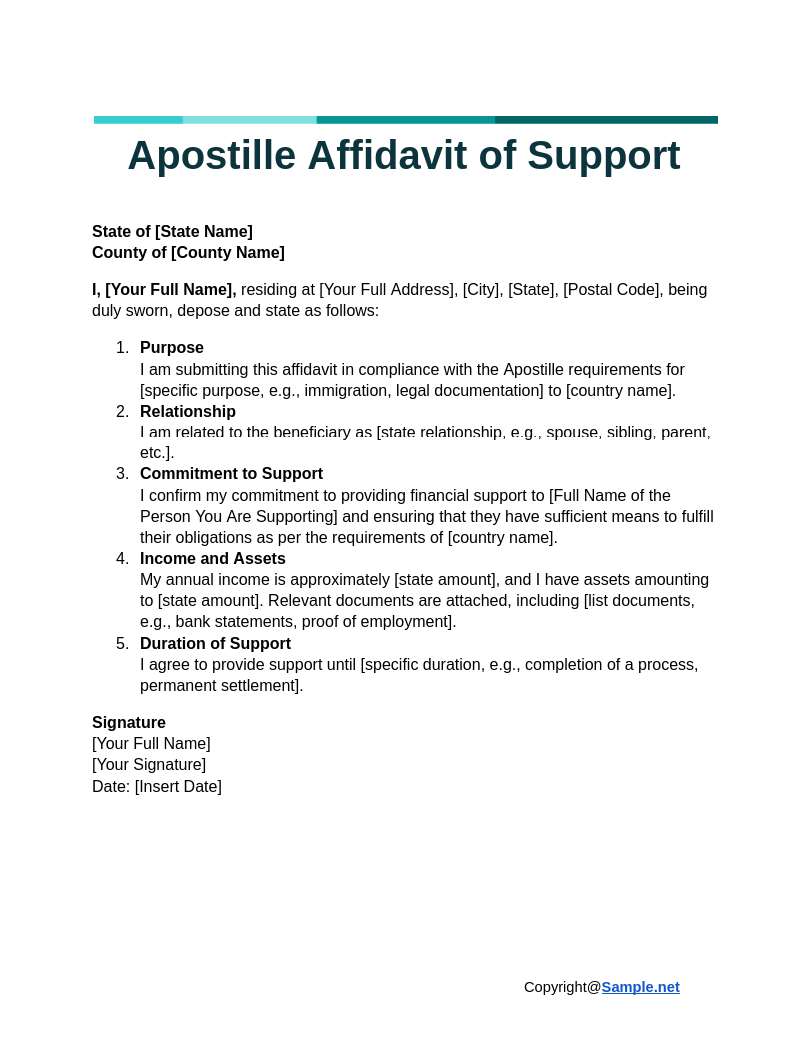
Apostille Affidavit of Support
download now -
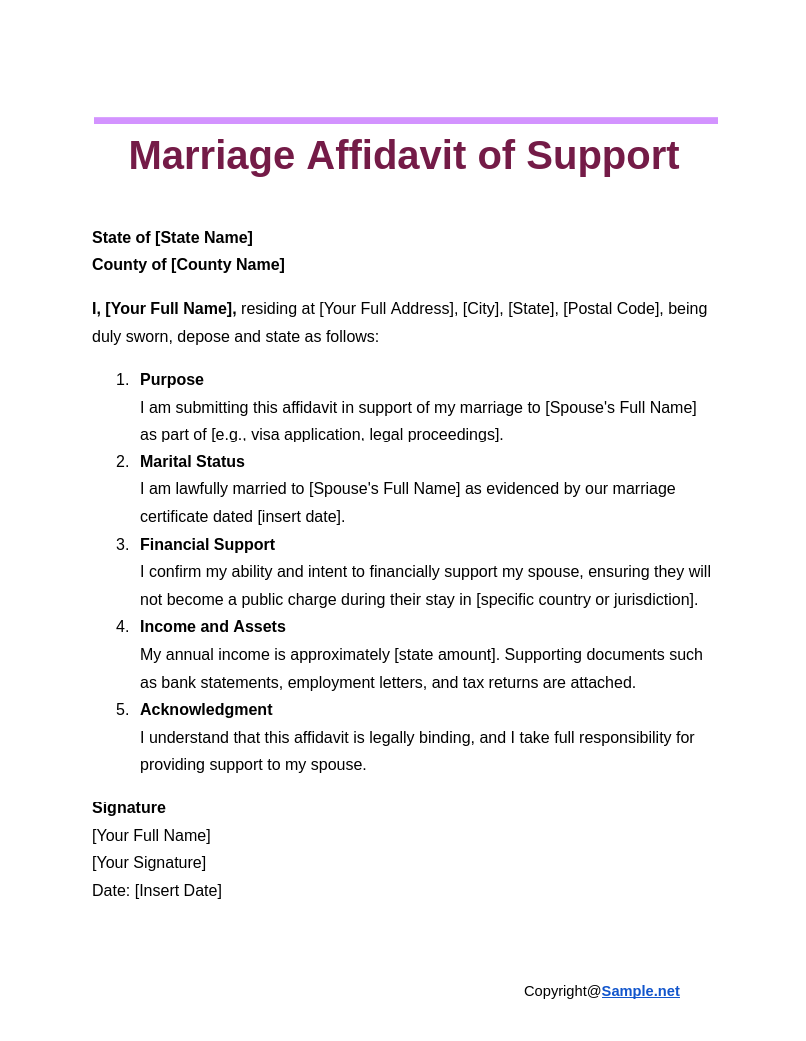
Marriage Affidavit of Support
download now -
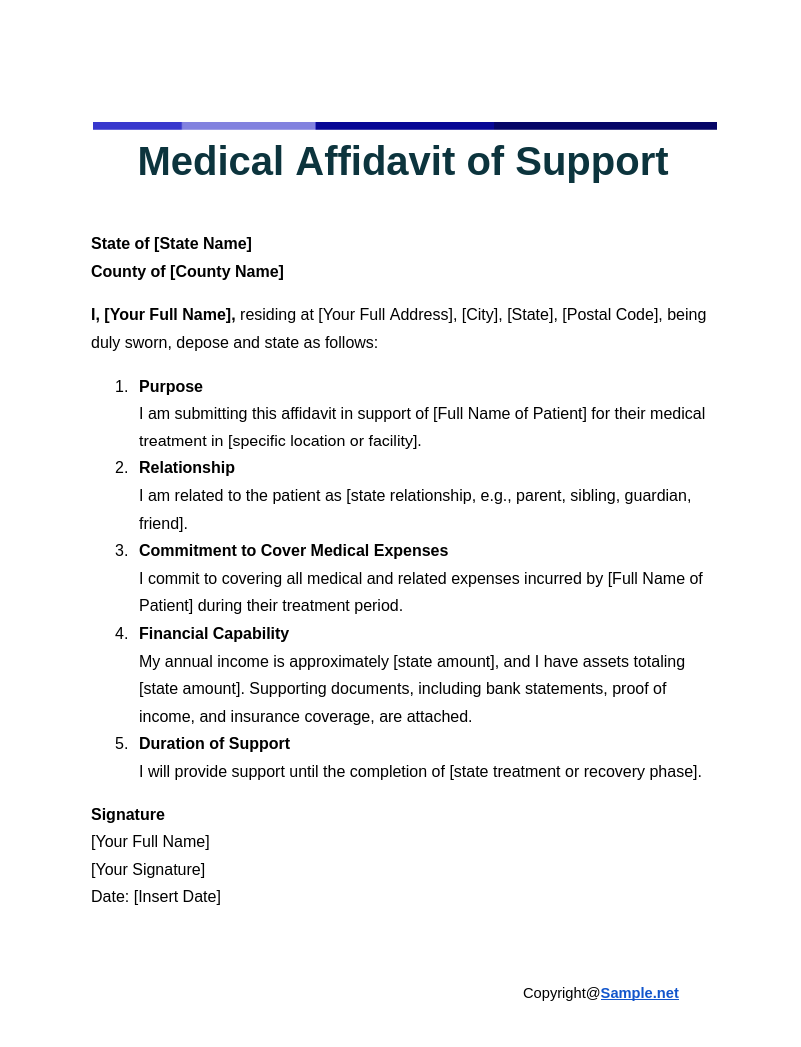
Medical Affidavit of Support
download now -
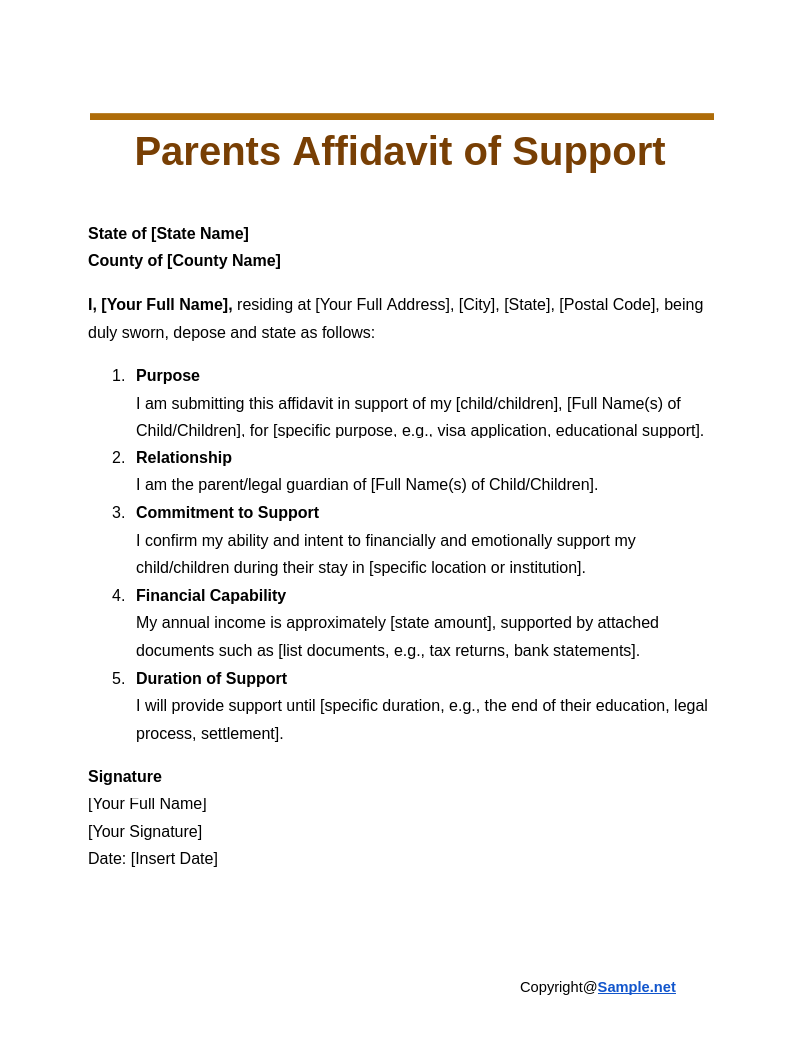
Parents Affidavit of Support
download now -
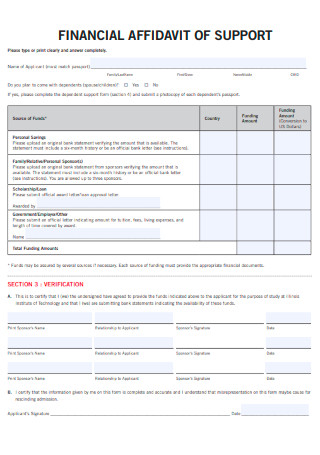
Financial Affidavit of Support
download now -
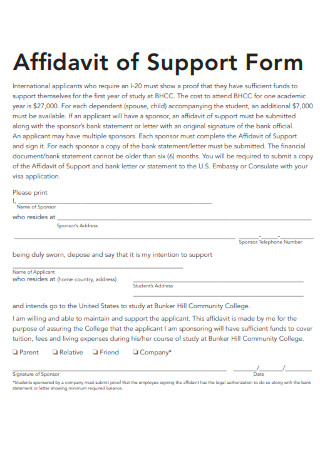
Affidavit of Support Form
download now -
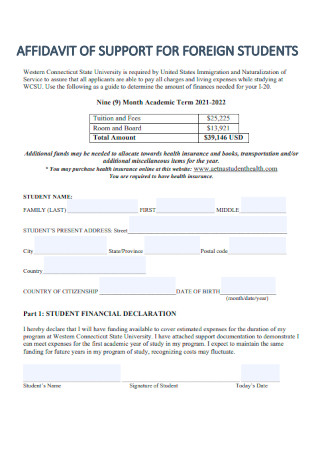
Affidavit of Support for Foreign Students
download now -
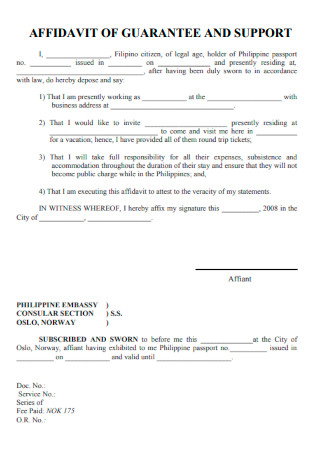
Affidavit of Guarantee Support
download now -
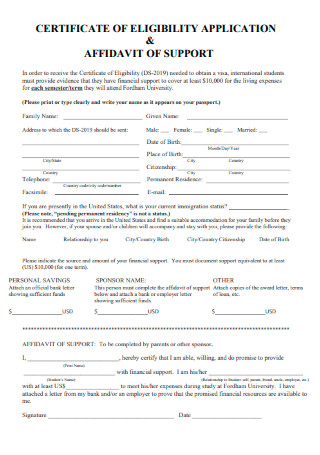
Certificate of Eligibility Application & Affidavit of Support
download now -
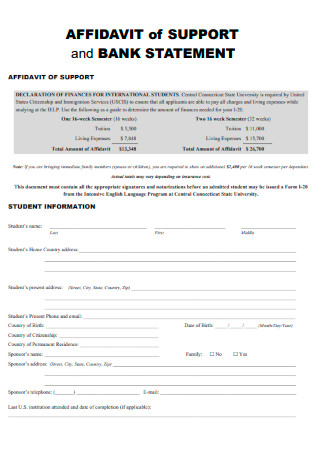
Affidavit of Support and Bank Statement
download now -
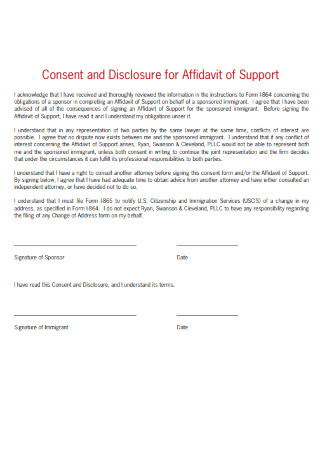
Consent and Disclosure for Affidavit of Support
download now -
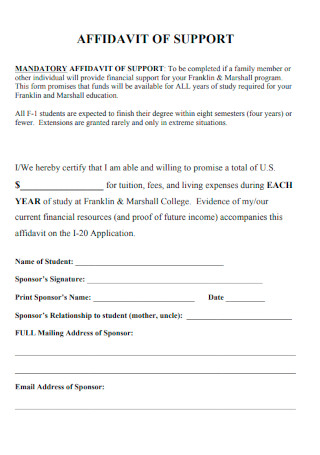
Mandatory Affidavit of Support
download now -
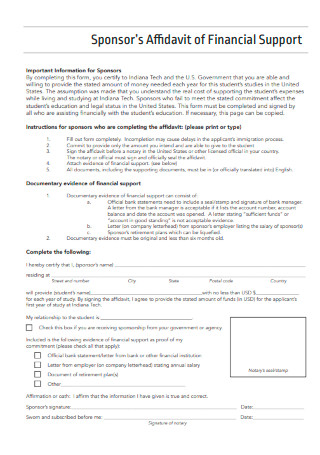
Sponsors Affidavit of Financial Support
download now -
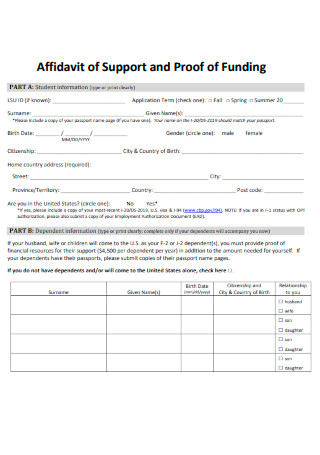
Affidavit of Support and Proof of Funding
download now -
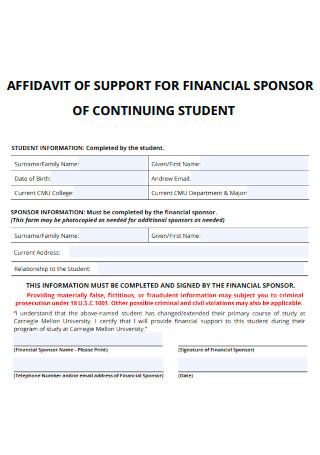
Affidavit of Support for Financial Sponsor of Continuing Student
download now -
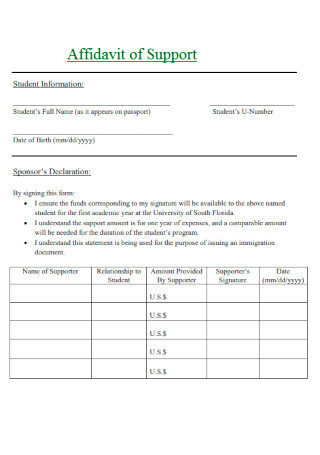
Sample Affidavit of Support
download now -
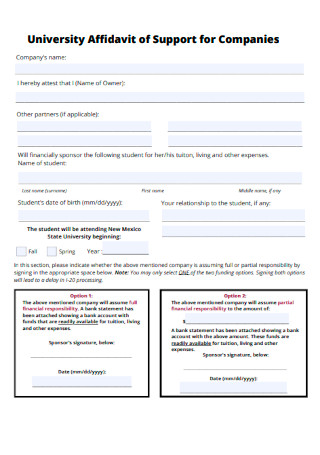
University Affidavit of Support for Companies
download now -
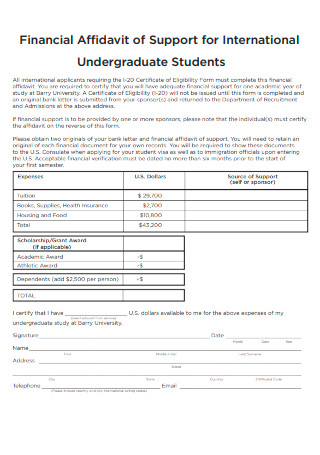
Financial Affidavit of Support for International Undergraduate Students
download now -
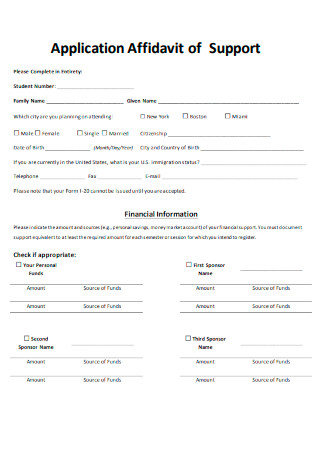
Application Affidavit of Support
download now -
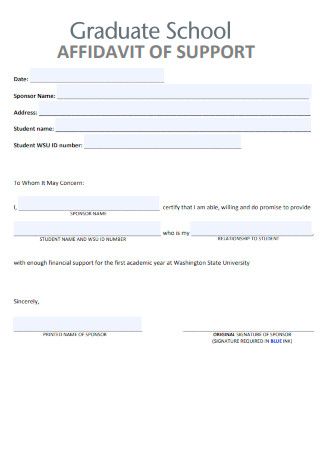
Graduate School Affidavit of Support
download now -
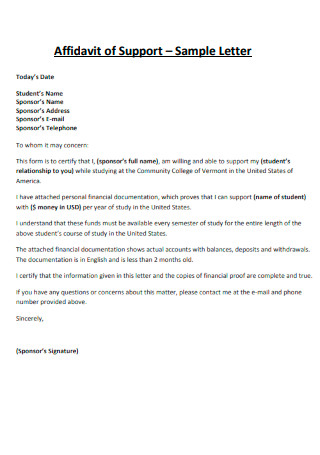
Affidavit of Support Letter
download now -
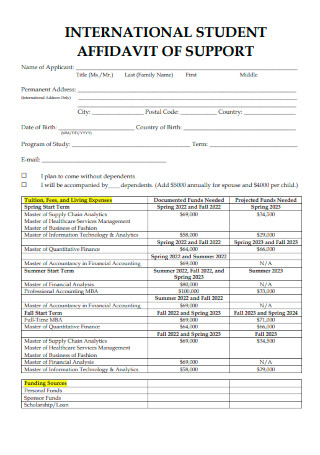
International Student Affidavit of Support
download now -
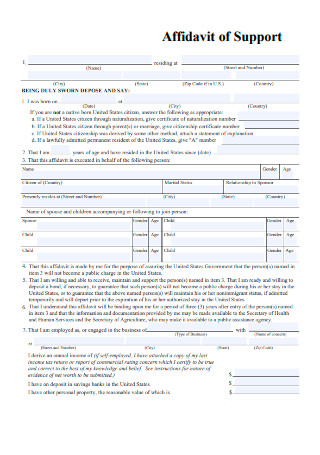
Basic Affidavit of Support
download now -
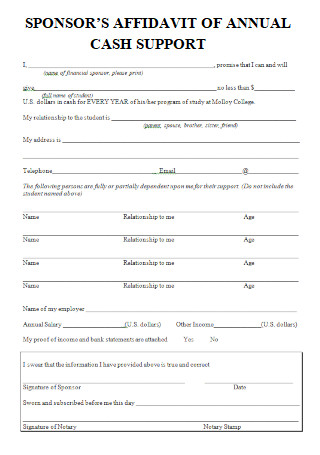
Sponsors Affidavit of Annual Cash Support
download now -
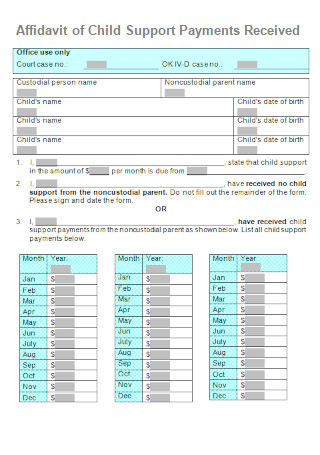
Affidavit of Child Support Payments Received
download now
FREE Affidavit of Support s to Download
Affidavit of Support Format
Affidavit of Support Samples
What is Affidavit Of Support?
Types of Affidavit of Support
How to Create an Affidavit of Support
FAQs
Who can provide an affidavit of support?
Why is an affidavit of support needed?
What documents are needed to file an affidavit of support?
What are the financial requirements for an affidavit of support?
How long is the sponsor financially responsible?
What happens if the sponsor fails to fulfill their obligations?
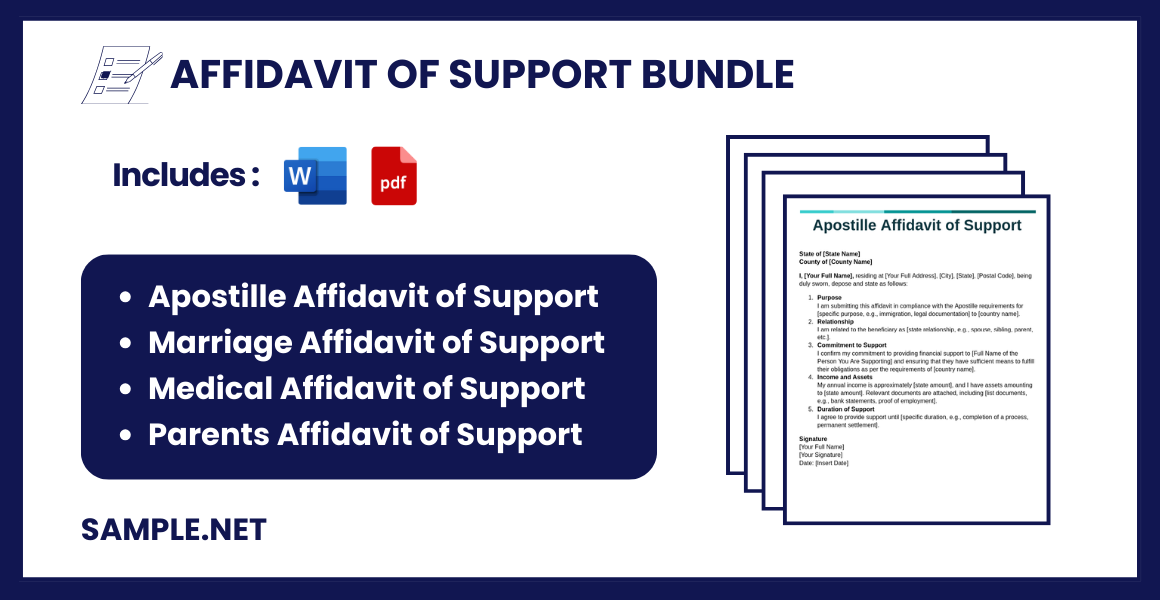
Download Affidavit of Support Bundle
Affidavit of Support Format
State of [State Name]
County of [County Name]
I, [Your Full Name], residing at [Your Full Address], [City], [State], [Postal Code], being duly sworn, depose and state as follows:
- Purpose
I am submitting this affidavit in support of [Full Name of the Person You Are Supporting], who is applying for [specific visa/immigration process] to the United States. - Relationship
I am related to the beneficiary as [state relationship, e.g., parent, sibling, employer, friend]. - Financial Capability
I am willing and able to financially support [Full Name of the Person You Are Supporting] and ensure that they will not become a public charge during their stay in the United States. - Income and Assets
My annual income is approximately [state amount], as evidenced by the attached financial documents, including [list supporting documents, e.g., tax returns, bank statements].
Additionally, I have assets amounting to [state amount] that I am prepared to use if necessary. - Duration of Support
I agree to provide financial support to [Full Name of the Person You Are Supporting] from the date of their arrival in the United States until [specific time period, if applicable]. - Supporting Documents
Attached to this affidavit are the following documents:- Proof of income (e.g., recent tax returns, pay stubs).
- Bank statements for the last three months.
- Employment verification letter.
- [Other documents as applicable].
- Acknowledgment
I understand that this affidavit is a legally binding document, and I may be held responsible for any financial obligations that arise as a result of this support.
Signature
I swear under penalty of perjury that the foregoing is true and correct.
[Your Full Name]
[Your Signature]
Date: [Insert Date]
Notary Public Certification
Subscribed and sworn to before me this [day] of [month], [year], by [Your Full Name].
Notary Public
[Seal]
[Notary Public Name]
My Commission Expires: [Insert Date]
What is Affidavit Of Support?
An affidavit of support is a legally binding document where a sponsor agrees to financially support an individual. This document is typically required in immigration processes to ensure that the sponsored person has financial backing and will not rely on public assistance. The sponsor must meet certain income criteria and provide evidence of their financial stability. The affidavit acts as a guarantee for the authorities and a commitment from the sponsor. You can also see more on Affidavit of Payment.
Types of Affidavit of Support
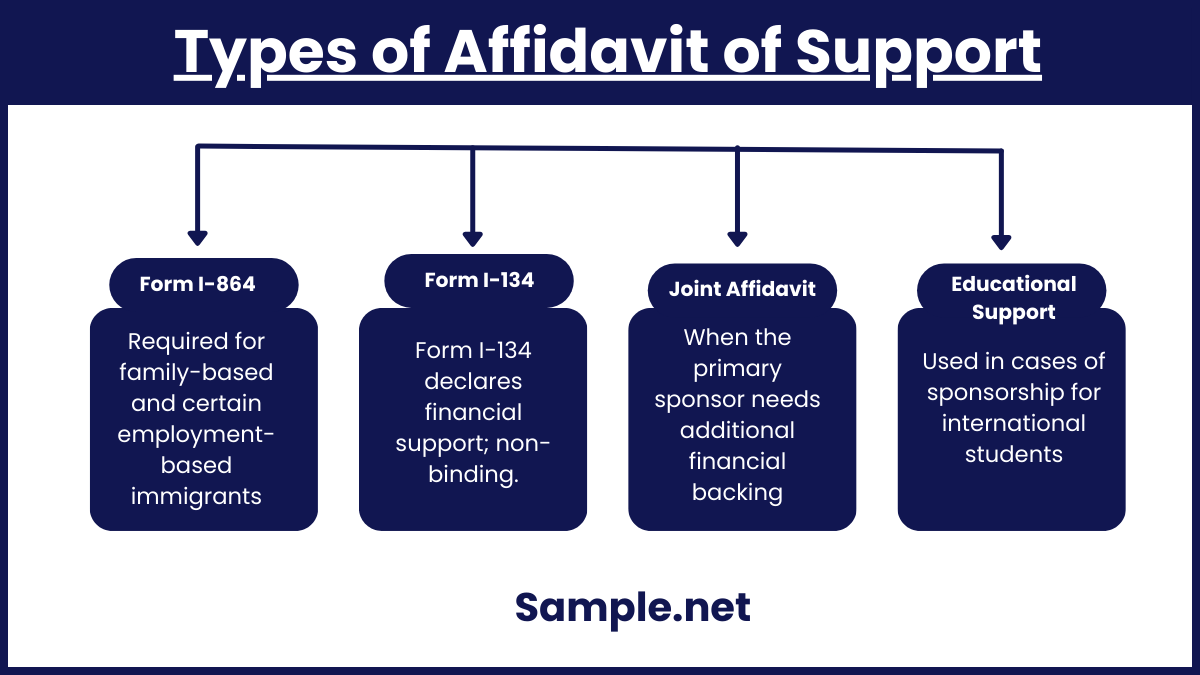
1. Form I-864 (Affidavit of Support for Immigration)
This affidavit is commonly used for family-based and certain employment-based immigration applications. It is a legally binding document required by U.S. Citizenship and Immigration Services (USCIS) to demonstrate that the sponsor has sufficient income or resources to financially support the immigrant. This helps ensure that the immigrant will not become a public charge once in the U.S. Sponsors must meet specific income thresholds and provide evidence like tax returns or bank statements to qualify.
2. Form I-134 (Affidavit of Support for Non-Immigrant Visitors)
This form is typically used for non-immigrant visa applicants, such as those applying for tourist or student visas. It serves as a declaration from the sponsor that they will financially support the visitor during their temporary stay in the U.S. Unlike Form I-864, this form is not legally binding, but it still requires evidence of financial capability, such as recent bank statements, proof of employment, or other financial documents. You can also see more on Affidavit of Personal.
3. Joint Affidavit of Support
A joint affidavit is used when the primary sponsor’s income or resources are insufficient to meet the financial requirements. In such cases, another individual, called a joint sponsor, steps in to share financial responsibility. Both the primary sponsor and joint sponsor must submit their financial documents and meet the required criteria. This type of affidavit is often seen in family-based immigration cases where additional financial support is necessary to meet eligibility requirements.
4. Affidavit for Educational Support
This affidavit is commonly required for international students seeking financial sponsorship for their education abroad. It serves as a commitment from the sponsor to cover tuition, living expenses, and other related costs during the student’s academic journey. The document may also include a breakdown of the financial support provided, such as payment for tuition, housing, or stipends, ensuring the student has the necessary resources to complete their studies without financial hardship. You can also see more on Affidavit of Employment.
How to Create an Affidavit of Support
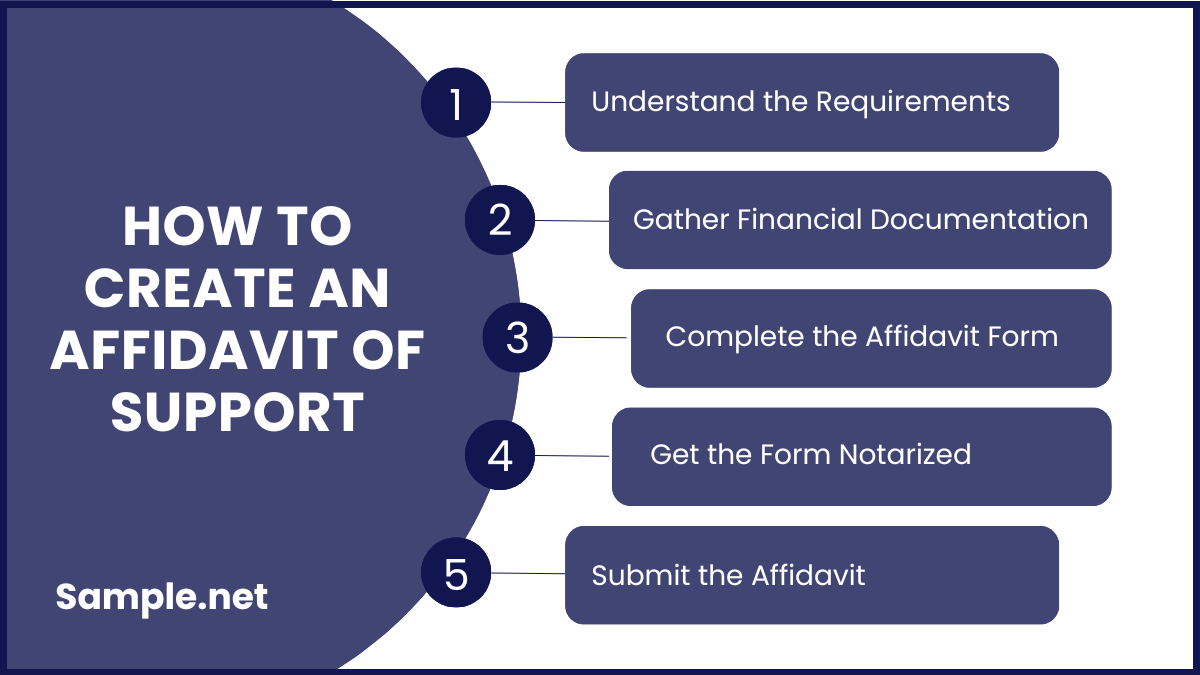
Step 1: Understand the Requirements
Research the specific affidavit of support form applicable to your case, such as Form I-864 or I-134. Learn about the income criteria and document checklist. Review the instructions provided by immigration authorities to avoid errors. It is crucial to meet the financial thresholds defined by the sponsoring country’s laws. You can also see more on Company Affidavit.
Step 2: Gather Financial Documentation
Collect supporting documents, such as tax returns, pay stubs, and bank statements. These will demonstrate your financial ability to support the sponsored individual. Ensure all financial records are up-to-date and accurate. Incomplete or outdated documents may lead to rejection.
Step 3: Complete the Affidavit Form
Fill out the affidavit form carefully. Provide accurate personal information, including your full name, address, and relationship with the sponsored person. Detail your income, assets, and liabilities clearly. Avoid discrepancies or missing information, as these can delay processing. You can also see more on Affidavit of Marriage.
Step 4: Get the Form Notarized
Sign the completed affidavit in the presence of a notary public. Notarization adds legal credibility to the document. Ensure that all pages are properly signed and stamped. Keep copies for your records and the sponsored individual.
Step 5: Submit the Affidavit
Send the affidavit and supporting documents to the appropriate authority or include them in the immigration application. Track the submission to confirm its receipt. Be prepared to respond to any follow-up requests for additional information.
An affidavit of support is more than just a document; it is a binding commitment with significant implications for immigration success. Preparing it requires careful attention to detail, thorough documentation, and compliance with legal requirements. Whether you are sponsoring a family member, an employee, or a student, understanding the process ensures smooth navigation of legal obligations. This crucial document not only supports immigration cases but also underscores the importance of financial accountability. You can also see more on Affidavit of Character.
FAQs
Who can provide an affidavit of support?
Any individual meeting the financial criteria, such as a U.S. citizen or permanent resident, can provide this affidavit.
Why is an affidavit of support needed?
It ensures that the sponsored person has financial backing and won’t depend on public assistance. You can also see more on Affidavit of Residence.
What documents are needed to file an affidavit of support?
Documents include tax returns, bank statements, pay stubs, and proof of citizenship or residency.
What are the financial requirements for an affidavit of support?
Sponsors must meet or exceed 125% of the U.S. federal poverty guidelines. This income threshold ensures they can support the sponsored person without financial strain. It varies based on household size and location. You can also see more on Affidavit of Birth.
How long is the sponsor financially responsible?
The responsibility lasts until the sponsored individual becomes a U.S. citizen, earns 40 work credits, or permanently leaves the U.S. This can extend for several years.
What happens if the sponsor fails to fulfill their obligations?
If the sponsored person receives public benefits, the government may sue the sponsor for reimbursement. It is a serious commitment with legal consequences. You can also see more on Rental Affidavit.
